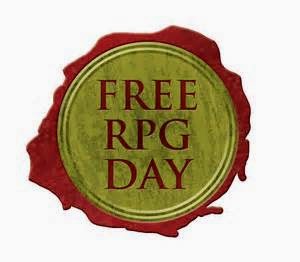Friends and Neighbours, I have a confession to make: I love eurogames. Oh to be sure, I appreciate all the pretty plastic and shiny bits that come with your average Ameritrash game. And, yeah I like games that emphasize theme as much as the next guy. But, at the end of the day, when it's all said and done, I love me a good, old-fashioned, victory point getting, engine building, theme pasted on euro. So for the next couple of posts I hope to introduce you to a number of my favourite euros -- starting with Castles of Burgundy.
Castles of Burgundy was released in 2011 from Alea/Ravensberger and was designed by Stephen Feld. It's worth noting that, so far as designers are concerned, Feld is generally recognized as the king of euros -- to be honest, pretty much every game he's ever designed could be called Sven! For those of you keeping count, Feld has designed such notable titles as: Roma, In the Year of the Dragon, Macao and Trajan. So why single out Castles of Burgundy as being worthy of particular note?
Well, Castles is a two to four player game and the key here, is that it plays exceptionally well with any number on that spectrum. In fact, my specific reason for writing about Castles it that it has repeatedly proven its worth as one of the best two player games in my collection. Indeed, Castles has been widely received as one of the best "couples'" games produced in the last several years. Here's the thing, while learning the game requires a little bit of effort in terms familiarizing yourself with iconography that's used used on the player board and the tiles, once you've got that down pat, you'll discover that this is a smooth, elegant, satisfying euro that is, perhaps, at it's best with two players. Indeed, with two players, you can knock out a very satisfying game filled with tough choices in under an hour.
So how does Castles play out? Well, each player will receive their own (possibly unique) player board. The player board represents land that you control in Burgundy (in France) during the time of the High Middle Ages and your task is to develop that land as fully and productively as possible. Your territory is divided up into different hexagonal territories representing various kinds of terrain -- for instance there are city, river, field, 'knowledge' and castle spaces. You'll fill those terrain spaces by acquiring tiles from a central game board and placing those tiles on your player board. How will I acquire the tiles you ask? Well, here's where things get interesting -- you'll be rolling dice! That's right: on your turn you will roll two dice and you'll be able to spend those dice to carry out different actions. Those actions include the ability to: take a tile from the main board into your personal supply; to place a tile from the supply onto your player board; to take modifier chits that will enable you to adjust the value of your die; or to sell various good that you've collected. You will earn VP by filling up the various colour coded terrain types in your territory -- with additional VP being awarded to the player who fills up a given section of their land the quickest. The player with the most VP at the end of the game is the winner.
So, what works about this game and why do I like it so much? First of all, as I noted above, this is a true euro. It's all about the efficient use of actions in an effort to create a VP generating engine -- which is something I love. As such, to say that the the theme is pasted on is being generous -- but hey, if this is your kind of game you weren't looking for theme anyways. Secondly, this game is just so polished and elegant in terms of its rules and mechanics. The rules are really so simple and straightforward -- afterall, you only have two dice and there are only four possible uses for each one of those dice. And yet, those choices can be so agonizingly tough to make! (As an aside, if there is a negative about this game, it's that it can be frustrating to play if one of your opponents happens to suffer from a bad case of analysis paralysis.) Further, while there is a degree of player interaction in the game, about the worst you can do is to take a tile that someone else wanted before they have a chance to snap it up. And that means that there's a relatively low 'screwage' factor here, another plus if you happen to be playing with your partner. Castles plays with two, three or four players and with very few rules changes related to the number of players. As noted above, the game is proably at its best with two or three players, but it plays relatively quickly even with the full compliment of four players. Finally, while there is most certainly an element of luck involved (you are rolling dice afterall), the luck is never back-breaking in its effect and, often, there are ways to mitigate the luck through careful play and decisions.
Ultimately, if you like euros that emphasize resource management, efficiency, offer a neat twist on the set-collection mechanic and building a VP generating engine, well then Castles is title well worth checking out. And, in particular, if you're looking for a fantastic, satisfying two player game -- well look no further. By way of comparison, if you have enjoyed other titles like Kingsburg, Endeavour, Village or Stone Age then there's good reason to think that Castles might find a welcome place on your shelf. And the good news -- when last I checked there were several copies on the shelf at the store just waiting to go home and sit on that shelf.
Thanks for reading and Game On!
Subscribe to:
Post Comments (Atom)








No comments:
Post a Comment